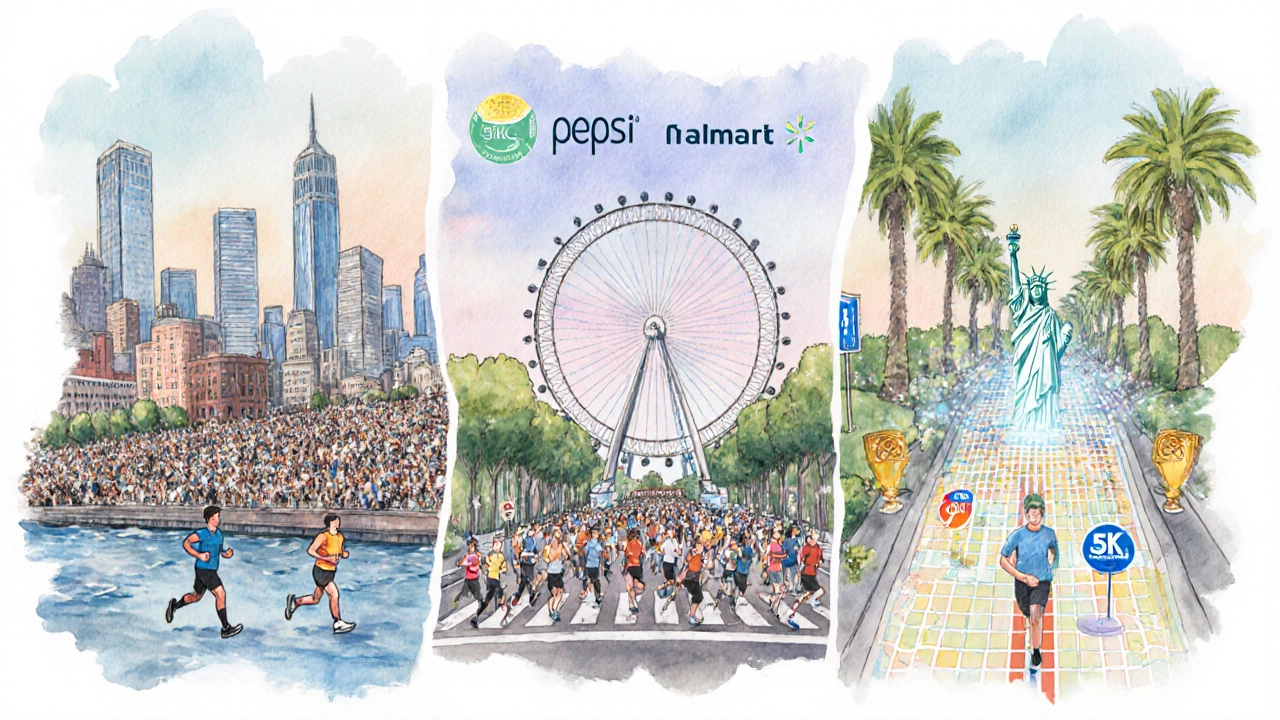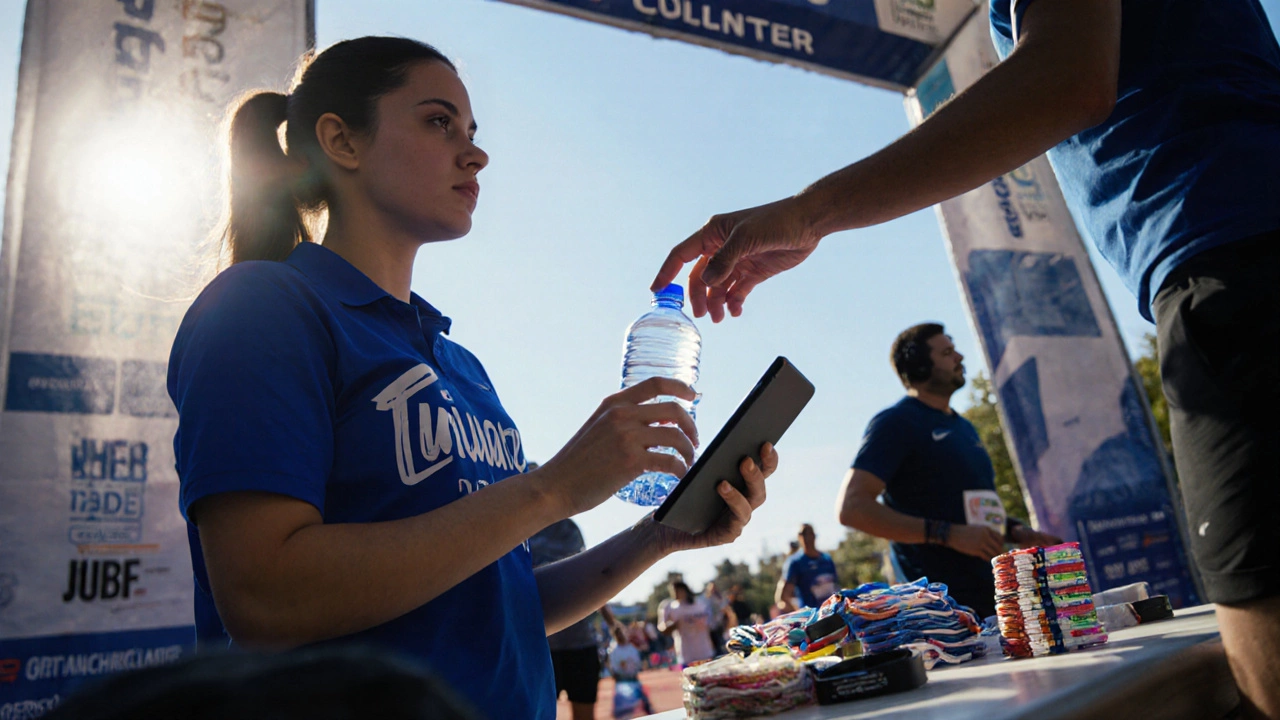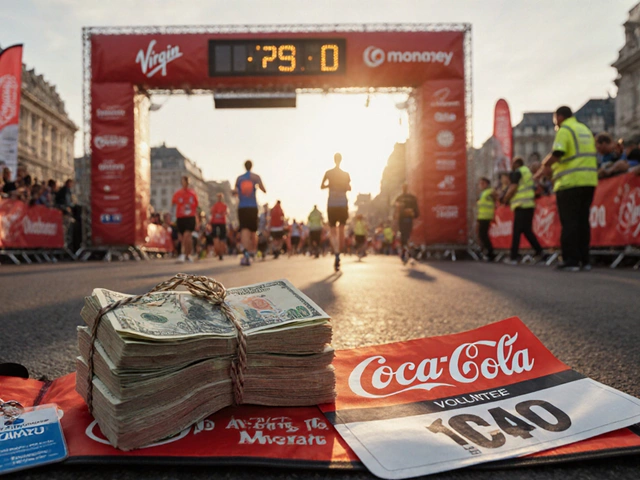Charity Race Earnings Calculator
Estimate your potential earnings from top charity races based on your fundraising efforts and volunteer hours.
Looking for the high paying charity races that reward volunteers and fundraisers? Whether you’re a seasoned runner or a first‑timer, the right race can line your pocket while you support a cause you care about. Below we break down how payouts work, which events top the list, and how you can secure a spot and boost your earnings.
How Payouts Are Structured in Charity Races
Most charity races operate on a hybrid model: participants raise funds, and the race organizers allocate a portion of sponsorship money or entry‑fee revenue back to top fundraisers and volunteers. The key components are:
- Sponsorship: Brands pay to have their name on the event banner, the race bib, or even a specific distance. A slice of this budget often funds prize pools.
- Prize Money: Direct cash awards given to the highest‑earning fundraisers or best‑performing volunteers.
- Registration Fee Rebate: Some races return a percentage of the entry fee to volunteers who log a set number of service hours.
- Fundraising Platform Fees are deducted before payouts, so the net amount depends on the platform used (e.g., JustGiving, GoFundMe).
Understanding these levers helps you pick races where the payout potential is highest.
Top 5 Highest‑Paying Charity Races (2025)
| Race | Typical Prize Pool for Top Fundraisers | Average Funds Raised per Participant ($) | Key Sponsor(s) | Volunteer Rebate Mechanism |
|---|---|---|---|---|
| Boston Marathon Charity Program | $25,000 | 1,200 | Boston Athletic Association, Coca‑Cola | 5% of registration fee per 5 volunteer hours |
| London Marathon Good Cause | £20,000 (≈$27,000) | 1,500 | Virgin Money, Asics | Flat $50 bonus for every 10 volunteer hours |
| New York City Marathon Hope Run | $30,000 | 1,300 | NYRR, New Balance | 10% of entry fee returned for 8+ volunteer shifts |
| Los Angeles Charity 5K Series | $15,000 | 800 | LA Marathon, Pepsi | $25 per 4 volunteer hours |
| Virtual Run for Cancer Research | $10,000 | 600 | Walmart, Fitbit | 30% of registration fee if you log 50+ miles |
These races consistently top the payout charts because they attract multinational sponsors and have robust volunteer incentive programs.

What Makes a Race High‑Paying?
Three main factors drive the size of the prize pool and volunteer rebates:
- Sponsor Strength - Brands that invest millions in branding get a larger budget to allocate as cash awards. For example, the Boston Marathon’s partnership with Coca‑Cola translates into a $25k pool for top fundraisers.
- Participant Volume - More runners mean more entry fees, which create a larger pool to share. The London Marathon averages over 40,000 runners, allowing a generous £20k prize.
- Fundraising Model - Races that set high minimum fundraising targets (e.g., $1,000 per runner) generate extra revenue that can be redirected as payouts.
If a race checks all three boxes, you can expect a higher payout.
How to Qualify and Volunteer for These High‑Paying Races
Getting a spot isn’t just about signing up; you need to meet a few criteria:
- Eligibility: Most top‑paying races require you to be at least 18years old and have a clean health clearance.
- Fundraising Minimum: For the Boston and London marathons, you must raise a minimum of $3,000 before the race day.
- Volunteer Hours: To tap into the rebate, log the required hours (usually 4-8 per shift) through the race’s volunteer portal.
- Application Timeline: Applications open 9-12 months ahead of race day. Early birds often receive priority placement and bonus incentives.
Tip: Keep a digital log of your hours and fundraising receipts; most race organizers ask for proof before releasing any money.

Pro Tips to Maximize Your Earnings
Even after you secure a spot, there are ways to stretch every dollar:
- Leverage Matching Gifts: Many employers match employee donations up to $500. Offer a simple form to your coworkers and watch the total balloon.
- Combine Multiple Races: If you’re a seasoned fundraiser, you can register for both a half‑marathon and a 5K in the same city, collecting separate prizes from each event.
- Use High‑Yield Platforms: Platforms like JustGiving take a 5% fee, whereas GoFundMe charges 2.9% + $0.30 per donation. Choose the lower‑cost option to keep more of the raised amount.
- Sell Merchandise: Branded shirts, water bottles, or wristbands sold to friends and family can count toward your fundraising total.
- Volunteer Strategically: Pick shifts that align with peak race times (start/finish lines). Organizers often award extra bonuses for high‑traffic volunteer work.
By blending smart fundraising with targeted volunteer hours, you can walk away with a tidy sum while supporting the cause.
Frequently Asked Questions
Which charity race offers the biggest cash prize for volunteers?
The New York City Marathon Hope Run tops the list with a $30,000 prize pool for the top 10 fundraisers, and it also gives a 10% registration‑fee rebate for volunteers who complete eight or more shifts.
Do I need to be a runner to earn money from a charity race?
No. Many high‑paying races pay volunteers directly for their hours, regardless of whether they run. However, fundraising targets often apply to both runners and volunteers.
How early should I apply for a high‑paying charity race?
Start 10-12 months ahead. Early applications secure the best volunteer shifts and may qualify you for extra early‑bird bonuses.
Can I combine corporate matching with race payouts?
Absolutely. Matching gifts are added to your total fundraising amount before the race organizer calculates the prize distribution, effectively boosting your share.
Are virtual races worth the effort?
Virtual races often have lower overhead, so prize pools are smaller, but they’re flexible, require no travel, and still offer volunteer rebates based on mileage logged.






